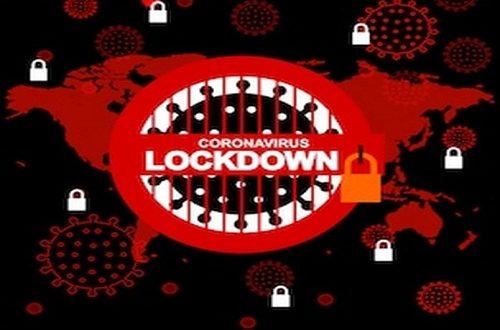An online study by market research and consulting firm Ipsos has found that more than eight out of 10 online South Africans support the lockdown.
“84% agree that a total lockdown was correct – given the risks of the Covid-19 pandemic,” its spokesperson, Mari Harris, said in a statement on Friday.
The country went into a three-week lockdown on 26 March to minimise the spread of the virus, it was later extended by a further two weeks.
This was followed by President Cyril Ramaphosa introducing a risk-adjusted strategy comprising five levels of lockdown to allow for economic activity while managing the virus.
The online study involved 1 000 South Africa adults aged between 18 and 65 from all provinces and population groups. It was conducted from 20 to 22 April.
“Despite a lot of comments in the media and critique from individuals, South Africans from all working status groups share this opinion,” Harris said.
The study found of the people working full time, 18% thought a total lockdown was excessive and would not solve the issue, while 82% found a total lockdown was correct given the risk.
Of the part-time working group, 15% did not support the lockdown, while 85% did.
Those not working were 84% in support of the lockdown, while 16% were not, and of the unemployed, 86% were for the lockdown while 14% were not.
“This acceptance is expressed by all age groups, however, those aged 56 years and older, and to a lesser degree those between 26 and 35 years, are less supportive.
“The latter group’s apprehension might be related to having to look after young children/keep them entertained during this period of lockdown,” Harris said.
The study also found most South Africans (78%) expected the lockdown to be extended past the end of April.
“Taking the support for the lockdown into account, it comes as no surprise that online, South Africans feel very strongly [86%] that the people who break the rules should not expect a lot of mercy,” she added.
Almost 92% of the study found people take the virus into account before thinking about where they will go, who they will meet and what they will do on a particular day.
The study also showed the fear of infection has not led to a total change in shopping behaviour but 22% indicated they make use of online shopping more.
“This new behaviour is prevalent among all age groups, but more in the 26 to 35 year age group,” Harris said.
In addition, 67% of South Africans say they are visiting major shopping centres less frequently.
“This study is representative of the almost two thirds of South Africans who can access the internet at home or on their mobile phones,” she added.
NEWS24
 Home Of Ghana News Ghana News, Entertainment And More
Home Of Ghana News Ghana News, Entertainment And More





